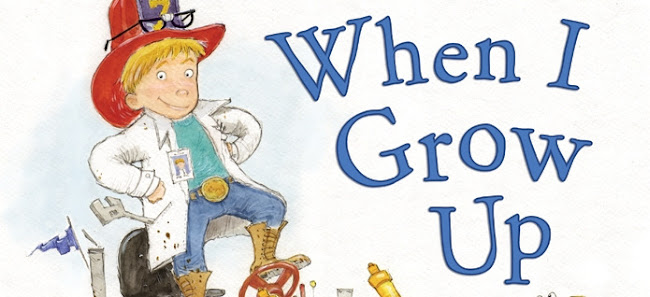#4 When I Grow Up
One of the highlights of my week has been making the important life decision of which profession I want to take up as an adult. And honestly, I don’t know myself. I see my interests as subjects, not as careers. I know that I like science, math, history, English literature, computer science but does that mean I’ll have to become a doctor, historian, writer, engineer or computer scientist?
Some people have their aims clear but it isn’t for me. I am bad at setting long term goals and I don’t understand how people are expected to decide what they’ll be doing for thirty or forty years when they’re just inexperienced teens.
Austin Kleon says, “We are not nouns, we are verbs. I am not a thing – an actor, a writer – I am a person who does things – I write, I act – and I never know what I am going to do next. I think you can be imprisoned if you think of yourself as a noun.”
This is exactly what I’m trying to convey. Thinking about sticking to one thing seems boring and risky. What if it’s tedious? What if I figure out I don’t find it enjoyable halfway through?
It seems that “when I grow up” isn’t a small decision, it requires a very careful thought and a lot of planning. It’s something you’ll be dedicating your whole life to and that’s some pressure. While discussing this subject in an article, Abigail Lane writes –“With the retirement age rising to 67 by 2026-28, young people will soon work for 50 years or more. I realise that choosing the profession I want to follow and university courses that will get me there – is a decision of paramount importance. But I can’t help thinking that it’s too much for an inexperienced seventeen years old to make. With students choosing careers that may not suit them, a worrying scenario could emerge: we could be stuck in careers like round pins in square holes. This is detrimental for the students because reconsidering a career is an enormous decision.”
Now personally, I think that at this stage it is more important to perfect your skills than eyeing a definitive profession that may or may not be in demand in future. With new personality based careers emerging, it’s important to study the subjects you’re interested in (in the best way you can) but not assuming a permanent career for yourself.
For instance – I like science and I’ll study science. I’ll give it my best but I’m not hoping for a specific science-based career (like a doctor). After studying the basics, I can decide which science-based career I’ll be pursuing based on the future circumstances.Also two decades back, professions like Digital marketer, Youtuber, App Developer, Data Scientist didn’t even exist. These terms had never been heard of and the people who practice these careers today didn’t aim for these certain careers when they were teenagers.
They chose them because of their skills not because of a set of memorized knowledge. When I grow up, I want to do something worthwhile for work with a bunch of side hustles to moderate it. We are verbs, not nouns. I am a person who has certain interests that I want to gain more knowledge on. Hopefully while studying them I’ll be able to figure out the particular profession.

